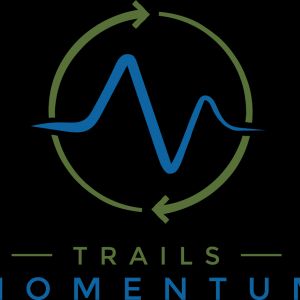BIDIRECTIONAL RELATIONSHIP BETWEEN MENTAL HEALTH AND OUTDOOR PROGRAMS FOR YOUNGPosted by Trails Momentum on April 24th, 2019 We know that happier people spend more time outside but forget that the relationship is bidirectional: people who spend more time outdoors are happier. The benefits of outdoor activities and programs aren’t just limited to people who are predisposed to having a stronger connection with the environment. Outdoor programs for young adults who are struggling with mental health issues can significantly improve one’s mood and self-esteem, strengthen their values, and build a sense of adventure and interconnectedness. Young adults are particularly vulnerable to feeling detached from their natural and social environments as they struggle with the transition from high school to future careers. However, not all who wander are lost. Feeding the WolvesIn a recent survey by The Nature of Americans National Report, they found that “more than half of adults reported spending five hours or less in nature each week and were satisfied with this small amount of time spent outdoors. Parents of teens claim that their kids spend three times as many hours with computers and televisions each week as they do playing outside.” This reliance on technology to meet their needs of curiosity and entertainment was concerning to parents, who noted that their children were unaware of how the natural world works and unfamiliar with the simple enjoyment of spending time outdoors. There is a fight within each of us between keeping up with globalization and wanting to revert to simpler times. With busy schedules and increasing demands of social connection, it is harder to view time in nature as necessary for restoring physical health and well-being. When self-care is calling, which wolf do you feed to balance your mental health needs? Beyond the Pleasure Principle of Mood RegulationMembers of the iGen who have grown up along with new technologies are caught in this in-between of understanding the importance of nature and the environment because of their parents’ values and information they’ve read, but not prioritizing immersing themselves in it. As cultural norms shift towards dedicating ourselves towards screen time, this generation is flooded with information and distractions as their stress levels rise. While the internet can be used as a platform to fight mental health stigma, it also contributes to higher rates of depression, anxiety, self-doubt, loneliness, cynicism, and self-comparison. Screen time is associated with poorer quality of sleep, difficulty concentrating, and overstimulation. In contrast, spending time in nature is associated with higher levels of pleasure, life satisfaction, renewal, empathy, and lower levels of anxiety and depression. Restoring Relationships with Nature and Ourselves:Reset and Launch. We have the tendency to think of nature as a form of escapism, as forests and national parks have been driven further from our homes. At Trails Momentum, we take advantage of the escape from the real world and use time outdoors as a time to gain insight, realign goals, and learn new tools to help students launch into adulthood away from the distraction of technology and responsibilities. Understanding parallel processes between nature and our own internal systems. The organization of the natural world helps us to understand interdependence and the natural flow of life. Like our own bodies, nature is self-regulating. Most animals coexist. The sun continues to rise and set. Flowers bloom every spring. Leaves fall every summer. Although our environmental footprint can disrupt these patterns, nature is resilient. Acknowledging these patterns helps us to be more conscious of our relationship with nature and how fighting for its safety can help us ensure our own. Self-Reliance. On expeditions, students prepare their own meals and set up their own sleeping arrangements. Through adventure activities and learning outdoor skills, students gain confidence in being able to trust their own judgment and be self-sufficient. While the outdoor setting can present many challenges, students learn to rely on their natural environment, their intuition, and the people around them rather than technology. Outdoor programs teach survival skills to young adults who have been struggling to survive, let alone thrive in their home environment. Physical Health. People tend to think of time outdoors as limited to physical activity. Our backpacking expeditions incorporate adventure therapy, including hiking, rock climbing, canoeing, and whitewater rafting, while time at base camp focuses on how to be more intentional and live simply outdoors. Both aspects of outdoor time have significant health benefits, including reduced respiratory and cardiovascular illnesses, lower blood pressure, lower pulse rates, and lower cortisol levels, which is a marker of reduced stress. Healthy bodies contribute to healthy mindsets. Self-Esteem and Leadership. Our adventure activities promote physical and emotional strength, endurance, and balance. In a therapeutic context, outdoor activities strengthen confidence, problem-solving, and collaborative skills. Students are encouraged not only to participate in activities, but to reflect on their experiences and share what they’ve learned with others. Trails Momentum is about building the confidence and emotional intelligence that motivates students to be stronger leaders. We offer academic seminars in the Principles of Outdoor Recreation and Adventure and Communication and Leadership to help teens learn how to communicate emotions, manage conflict, and empower others. How Trails Momentum Addresses Mental HealthTrails Momentum is a wilderness therapy program for young adults ages 18-25 struggling with mental health issues, such as depression, anxiety, trauma, and self-doubt that have impacted their to transition to independent living. The program uses adventure therapy, cognitive behavioral therapy, and a strength-based approach. It is a small and nurturing community that focuses on goals of improved self-regulation and physical well-being. Trails Momentum gives students the skills they need to lead healthier, happier lives. We encourage students to acknowledge the wolves inside them and choose which one to feed. Article Source: https://trailsmomentum.com/blog/bidirectional-relationship-between-mental-health-and-outdoor-programs-for-young-adults/ Like it? Share it! |


